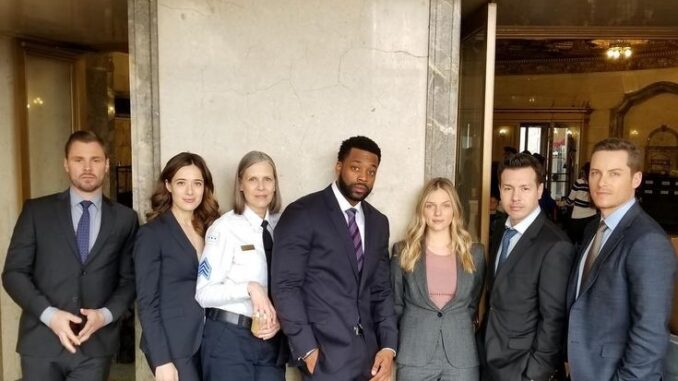
In a television landscape filled with fictional crimes and convenient resolutions, Chicago P.D. dares to confront something bolder — the gritty, uncomfortable reality of the world we live in. Unlike shows that shy away from controversy, Chicago P.D. leans into it, crafting storylines that are not only inspired by real-world events but also challenge viewers to reflect on justice, accountability, and the often-blurry line between right and wrong.
When Fiction Mirrors Reality
The show has never been afraid to tackle issues ripped straight from the headlines: police brutality, systemic racism, immigration raids, corruption, and the consequences of broken trust between law enforcement and the communities they serve. Rather than sugarcoating the difficult truths, Chicago P.D. puts them front and center. When a character like Kevin Atwater — one of the few Black officers in Intelligence — is pulled over simply because of the color of his skin, viewers are forced to sit with the same discomfort many face daily.
Kevin Atwater: A Mirror for Social Justice
Few characters reflect the show’s commentary on real-world injustice as poignantly as Atwater. His episodes often highlight the intersection of race, duty, and morality. In one particularly emotional arc, Atwater chooses to speak out against corrupt officers, despite knowing he’ll face consequences from within his own department. His courage to stand for what’s right, even at personal risk, turns a procedural drama into a platform for advocacy.
Voight’s Moral Dilemma
Then there’s Hank Voight — a man who embodies the moral ambiguity at the heart of the show. Is he a vigilante hero or a symbol of the broken system? His willingness to break rules in the name of justice has sparked countless debates. Sometimes he gets the job done. Other times, his methods raise troubling questions about unchecked power and blurred ethical lines. He is the embodiment of a system that sometimes protects and sometimes oppresses — and that duality is exactly what keeps the show grounded in reality.
Not Just Entertainment — A Social Conversation
Chicago P.D. goes beyond being just another crime drama. It asks questions that don’t always have easy answers: What happens when the justice system fails? Can good people still make bad decisions? How far should someone go in pursuit of justice? These are the same questions that dominate newsrooms and courtrooms in real life — and Chicago P.D. doesn’t pretend they’re easy to solve.
The Writers Aren’t Backing Down
Behind the scenes, the writers have made it clear: Chicago P.D. isn’t afraid to provoke. They’ve drawn inspiration from actual events — from protests following police shootings to the fallout of controversial verdicts — and have created scripts that challenge both their characters and their audience. That commitment to authenticity has earned the show praise, criticism, and, most importantly, conversations that extend beyond the screen.
While some shows choose escapism, Chicago P.D. gives us realism — even when it’s hard to swallow. By pulling from real-world headlines and turning them into emotionally charged, character-driven stories, it does more than entertain. It forces us to examine the world around us, recognize its flaws, and maybe even question our own definitions of justice.
